Transcription
Reply ID: paug
buhogrunon:
Before I respond to the questions and comments you've posted, I'd like
to say thank you, not just for reading what I'd written, but also for taking
the time to post your own responses. I really enjoyed reading them, just as
I've enjoyed responding to them. I may not always have the same opinioin as one
of my readers, but to me, this is what makes this coutry so great: the
ability to have a difference of opinion, and to not be subjected to
imprisonment for having them. Sadly, there are many coutries in the world who
do not enjoy this luxury, but that's a topic for another post...
In the first paragraph of your response, you asked "[w]hat about those
who didn't live through the [natural disaster]? [Am I] trying to argue that
it's okay for suck things to happen simply for people to prove themselves?"
First, my heart goes out to anyone who dies, whether the results of a natural
disaster, or an event cause by man. In fact, it's not just the person who
died that I feel for, but also for those left behind. Unfortunately, when it
comes to the issue of death, we lack the power to do anything to reverse it.
We're forced to accept those consequences, regardless of how tragic they may
be, or how much we wish we could do something to undo the effects of death.
Having said that, no, I am not trying to argue that it's "okay for such things
to happen simply for people to prove themselves." Instead, I'm arguing that,
having happened, having discovered yourself in just such a situation, you (or
anyone in such a situation), have an opportunity to do something truly
meaningful, something that's going to have a lasting impact on those in need.
It's a shame that such events have to take place, but having happened, this
doesn't mean that we shouldn't use this as an opportunity to show everyone the
best that humanity has to offer.
You went on to say that "[are they really heroic if the needed such a
huge push before they decided to do good? It's not so much that they needed a
"huge push" to do something good, it's that the term "heroic" is subjective.
As such, all sorts of heric actions are overlooked on a daily basis in favor
of things that are more reminiscent of something an actionf hero would do. For
instance, there's a very real possibilitiy that the food you donated to you
local food bank kept someone from starving to death, but compare this to
someone else running into a burning building to rescue a child. Both of these
actions had a tremendous impact on the people involved, but only one will ever
be labeled as "heroic," though the person you fed may be every bit as
greatful as the parent of the child you just saved. This is because the term
"heroism" is subjective at best. In each, the person did the right thing, but
it's the circumstances that society chooses to recognize when determining
whether a particular action is heroic or not.
-1-
As far as the decision to do good itself is concerened, sadly, you're
right. There are a lot of people who go throught their daily existence without
deciding to do somthing good for someone for nothing more than the fact that
this, including, but certainly not limited to them being too selfish to care
about anyone other than themselves, not believing that thei actions matter
that much, or lacking the confidence to stip up to the plate, Whatever the
reason, it doesn't necessarily mean that they're all bad, or that they're
beyound redemption. Hopfully, they'll one day see that their decidions has the
power to impact people around them positively and negatively, and change
their wayss accordingly. This was a lesson that I myself had to learn. Although
I made the general effort to do the right thinkg at the right time, I was far
from reaching my full impact, but my time behind bars has given me the
opportunity to explore and discover more of my potential. I've learned that,
even from within the confines of a prison setting, I have the capacity to not
only decide to do good, but also to ensure that the impacts of my actions
leave a lasting, posititve and meaningful impact far beyond the reaches of
these gates.
As far as your hypothetical scenario is concerned, where someone
intentionally sets fire so they can rush in a save the inhabitants,
thereby demonstrationg what a great person they are, this actually isn't as
hypothetical as it might first seem. Plenty of people have done similar
things, hoping to be recognized as a hero. Some people have went to the
extremes of setting fire, while others have just created fake mugging
scenarios so they could chase off the would0be robber, thereby impressing the
girl they admired. Ineach situation, while they may have fooled people into
thinking their actions here heroic, the fact that they cause the peoblem in
the first place completely negates anything they may have done afterwards. The
fact that my shooter turned around and performed emergency surgery on my to
save my life doesn't change the fact that he was the one who shot me in the
first place, and the same hold true for the person starting the fire. It all
boils down to intent.
And the same hold true for anyone who knew of the plan to start the
fire beforehand, but intentionally acted to stop it because they wanted to
play the part of the hero. They're just as guilty, and their actions are
meaningless. If they truly wanted to be a hero, then they should have acted to
apply to someone who didn't know anything about it al all, and who simply
responded because it was the right thing to do. I suppose that when you get
right down to it, it all comes down to intent, nothing more, nothing less.
you then stated that you have no "joy" in knowing that poeple have to
live with their response for the rest of their lives. There are a number of
possible explantaions for this, maybe even more than one. First, you have a
conscience, and as such, you don't want to see anyone suffering needlessly. In
other words, you're a compassionate person, even towards those who might not
otherwise deserve it. The other expalnation is based on something you said
immediately afterwards, that "[g]uilt in of (sic) itself without prompting the
person feeling it to do something good in response, doesn't serve any purpose
-2-
at all." In other words, if that person isn't going to be inspired by their
feelings of guilt to change their ways, then sufferring from guilt is
absolutely meaningless, and while I couldn't agree with you more, I think you
may have overlooked somehting critical here. Suffereing from guilt is a sign of
a conscience, and I don't know anyone who tryly suffers from pangs of remorse
who doesn't in turn go out and at least attempt to change their ways. That's
just how a conscience works. The more intense those guilty feelings, the more
you wnat to do something about them. It's a system of checks and balances that
serve to ensure that there's not too much chaos in the world. the people you
have to watch out for at the people who donn't feel bad for their actions.
These people have no personal incentive to change on their own, let alone to
make such changes permanent.
Other posts by this author
|
2020 aug 12
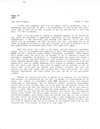
|
2020 aug 12
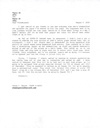
|
2020 may 30
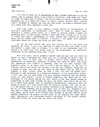
|
2020 may 30

|
2020 may 30

|
2020 may 24
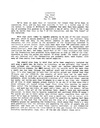
|
More... |
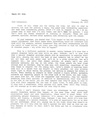

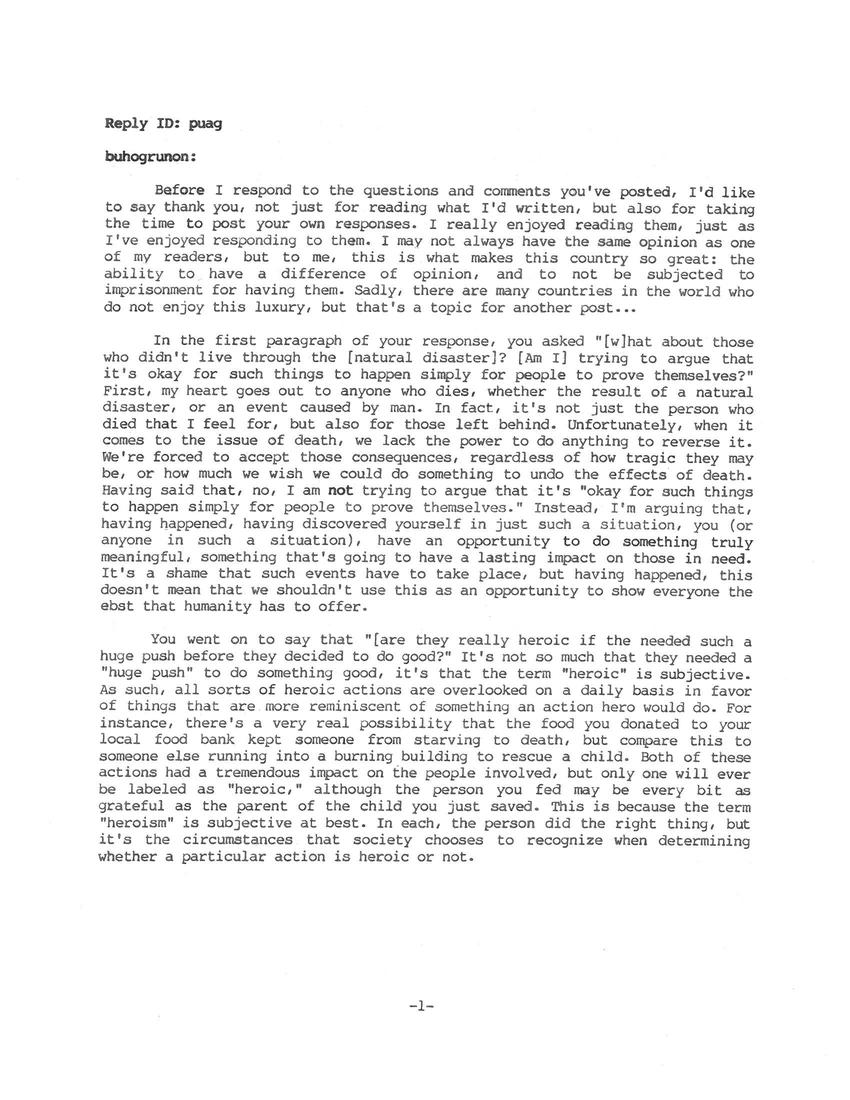
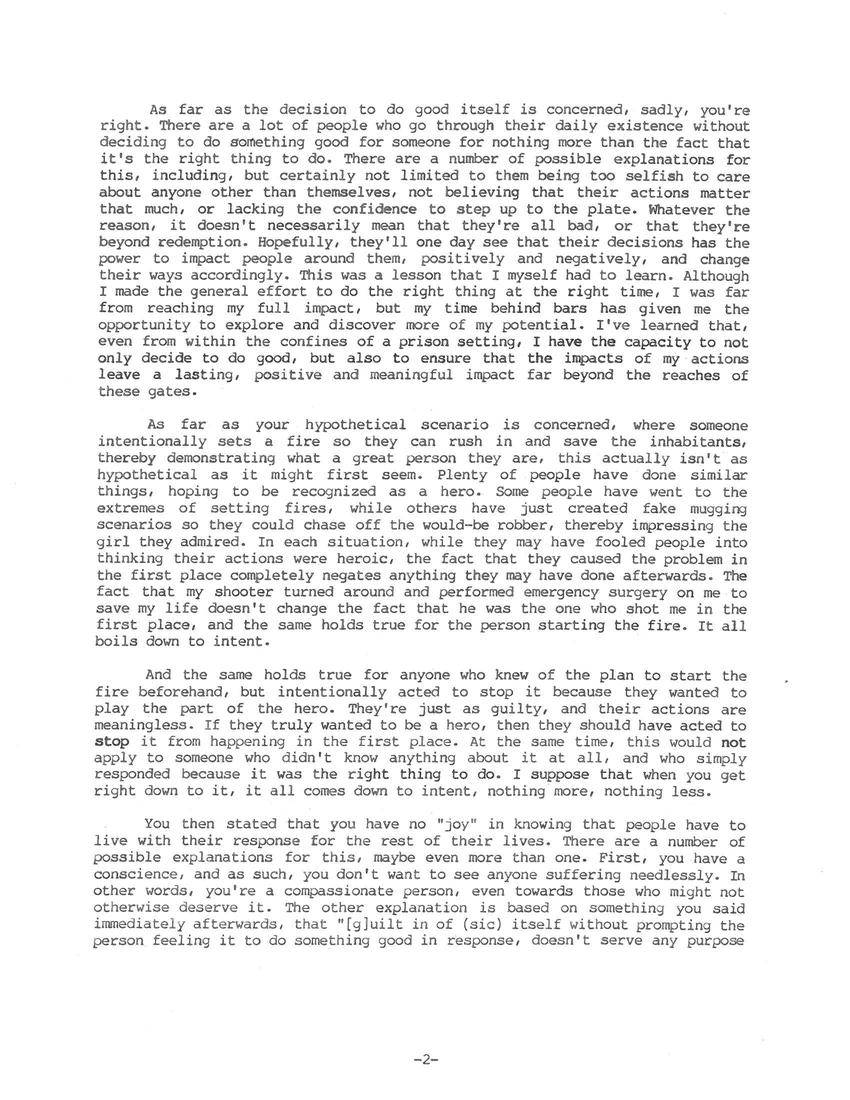
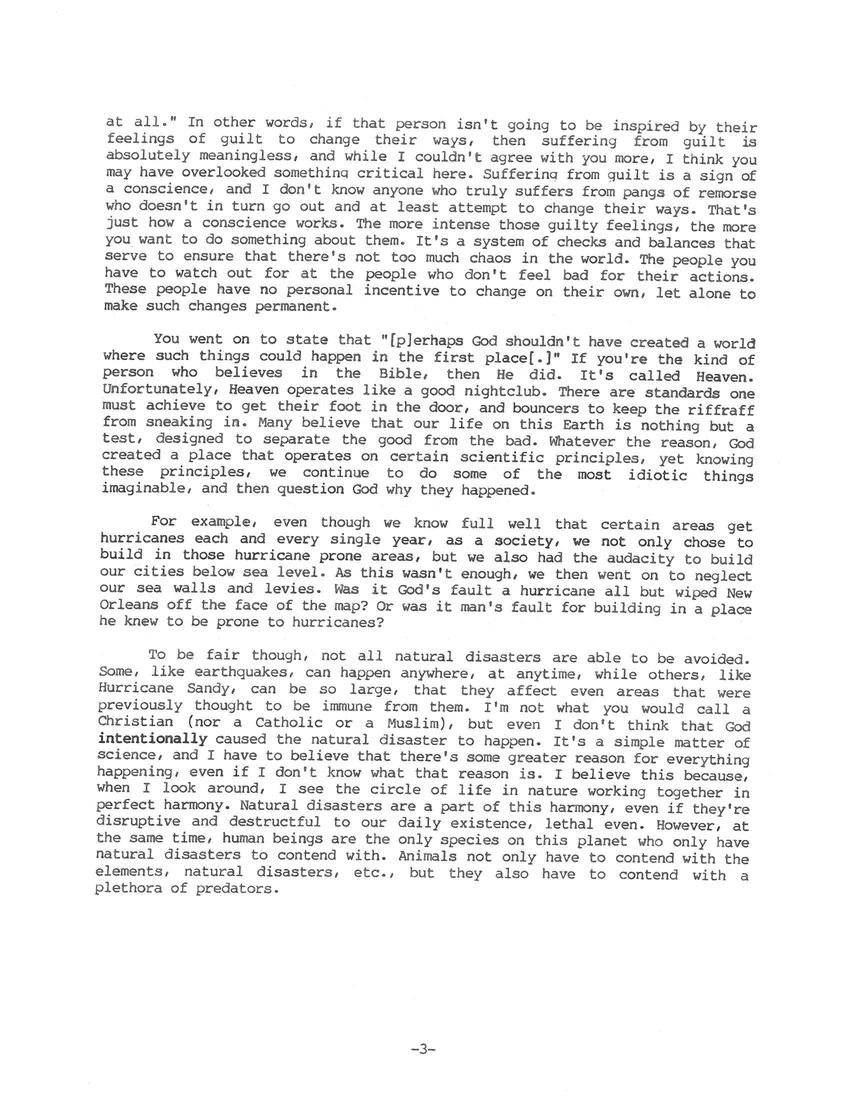
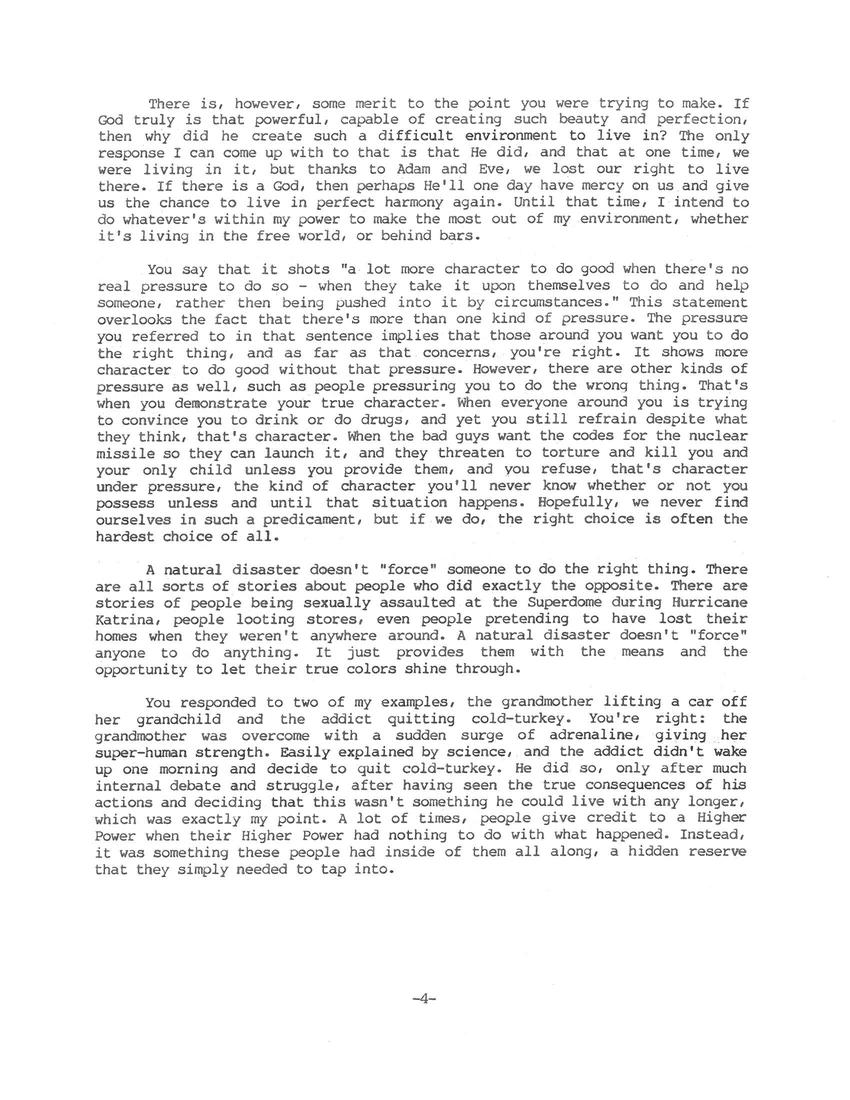
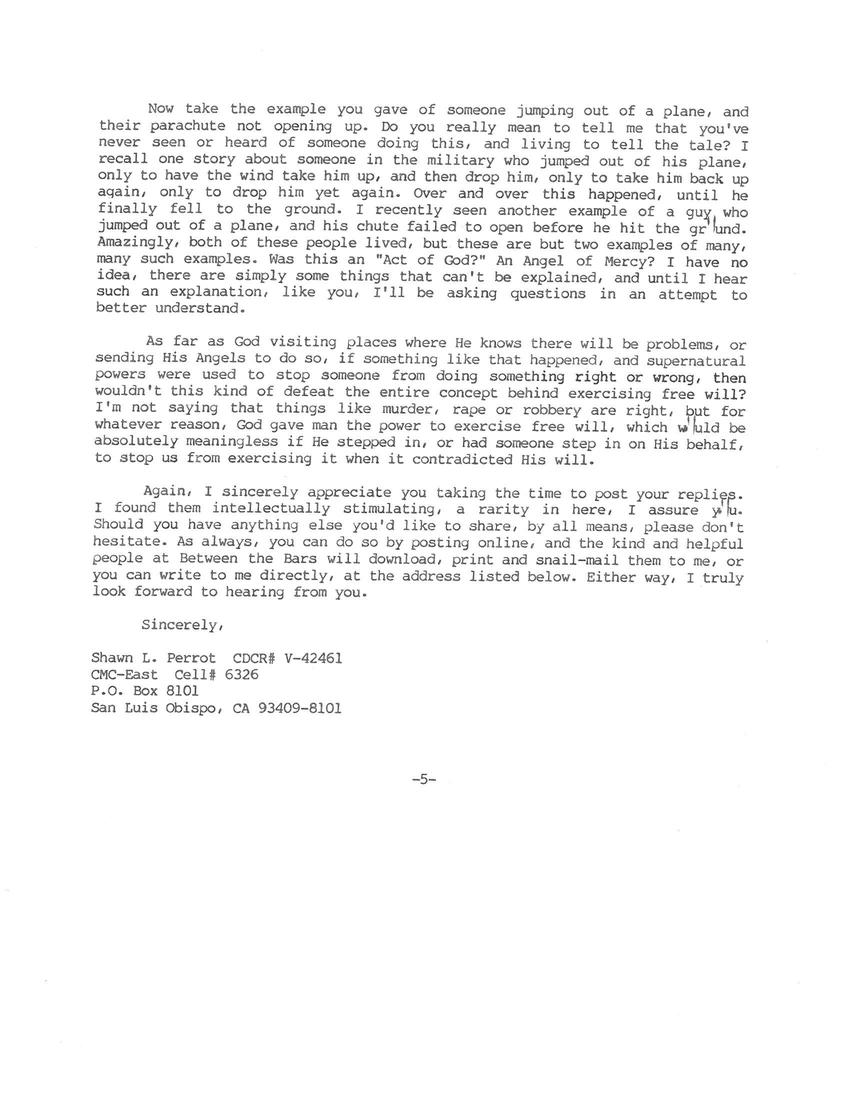

Replies (2)